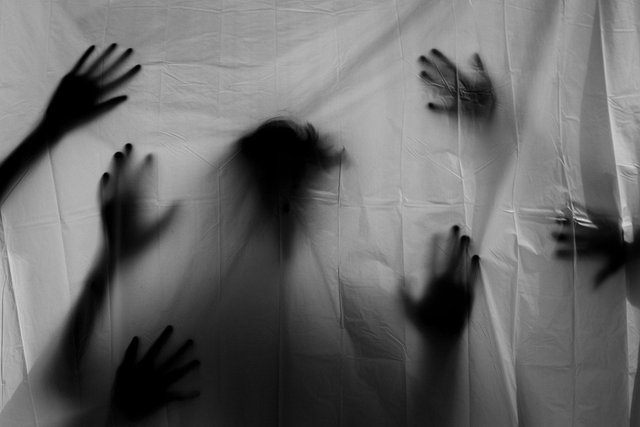Fear and anxiety: powers that control human behavior.
Greetings friends!
Long before the dawn of civilization, when early hominids used to dwell in trees and savannahs, survival was a daily battle for them. Predators like lions, leopards, and hyenas roamed freely there, and natural disasters like lightning storms, floods, droughts etc. struck without warning. Fossil records and anthropological studies suggest that fear was not just a reaction but a deeply ingrained survival mechanism for early humans. It should be recognized that fear shaped our instincts, sharpened our senses, and also made us innovative. Fear also protected us by keeping us away from danger.
Early humans crafted rudimentary weapons like stone-tipped spears, axes, and fire-hardened tools for hunting as well as protecting themselves. They made shelters for safeguarding themselves against rain, sunlight and storms. Shelter evolved from caves to huts, and eventually to fortified dwellings. To tame nature’s fury, humans built dams, irrigation systems, and granaries. This led to formation of advanced civilizations.
As societies grew, so did hierarchies. Empires like Babylon, Sumer, Egypt, Persian, Greek, Rome, etc. made their impact on history. With the advent of empires there came power struggles. Slavery, conquest, and oppression became tools of control. But fear didn’t vanish; it changed form, and this time it had more grip on human mind. Now, nature wasn’t the primary threat, it was other humans.
History is full of cases of rulers who wielded fear as a weapon. They tortured and killed people over trivial issues in order to instil a sense of fear in their hearts. From Nero’s brutal purges in Rome to the present democratic governments’ brutal missions in many countries, fear has been the weapon which they used intensively. In medieval Europe, questioning the Church could lead to excommunication or execution. The Inquisition, for instance, silenced countless voices in the name of divine authority. Over time, people have learned that silence was better than truth.
This fear has now seeped into the very DNA of human beings. This culture of fear seeped into the social fabric as well. Obedience became virtue while questioning became a sin. Today, that legacy persists. Citizens rarely challenge authority. We feel ourselves safer under surveillance, walls, guards, biometric locks, and CCTV cameras. Employees fear losing their jobs while managers fear corporate restructuring. CEOs fear market instability, and governments fear public unrest. So, everyone is afraid of every other in our world. Ironically, the very systems built to protect us often reinforce our anxieties.
Fear, it seems, is the primary emotion that drives humans. The powerless fear being crushed; the powerful fear being dethroned. From boardrooms to battlefields, classrooms to courtrooms, anxiety and apprehension determine human behaviour. We are now afraid of technology like AI and robotics too.
So we must ask ourselves. Is this the pinnacle of civilization? Have millennia of progress merely refined our fears? Or were we meant for something more - something braver, freer, and wiser?
Think about it.
